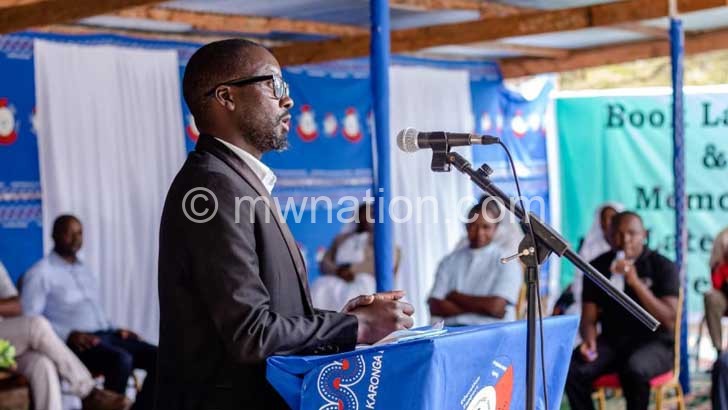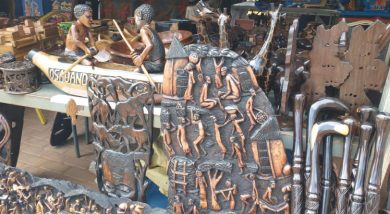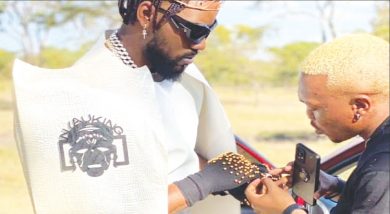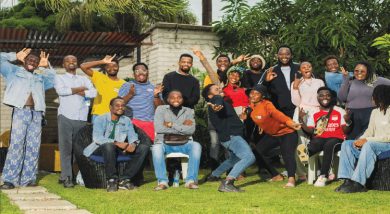Book on catholic nun gets rave review
Last weekend, the Catholic Diocese of Karonga launched a book written by Ndongolera Mwangupili to celebrate the life of Sister Beatrice Chipeta who died last year.
The book, titled A Gift to the People: Sr. Beatrice Chipeta’s Legacy, was commissioned by the diocese with the intention of preserving the legacy of the fallen sister who founded the Lusubilo Orphan Care Centre in Karonga.
The event attracted several dignitaries including Karonga Diocese vicar general Monsignor Denis Chitete, Sisters of Holy Rosary mother general Sister Mariarosa Phiri and Karonga district commissioner (DC) Paul Kalilombe.
Also, in attendance was Mzuzu University (Mzuni) history lecturer Denis Mwiba who reviewed the book.

Reads in part the written review: “This book reveals the commitment and determination of a woman that ultimately broke the chains of social betrayals, societal ills, diseases and other afflictions that affected and continue to affect God’s creation in Karonga as in other parts of the country and therefore, this biography as presented by Ndongolera reveals a hero amidst us whose humility and generosity became a pillar of hope, courage and strength to the many people she interacted with.”
The book has four chapters. The first two chapters explore the birth and growth of Beatrice Chipeta into the life of sisterhood.
The second part of the book is a reflection of the contributions of Chipeta towards humanity through her role and vocation as a Catholic nun.
The last part presents a highlight of what should be considered as the legacy of Chipeta in terms of the social, economic and religious dimensions of humanity in Malawi.
Mwiba says the book has established that the making of Beatrice Chipeta into what she came to be known for was basically from the contexts of the family she was born in, the schools she attended and the people she interacted with.
“It is in these chapters that we gather that Beatrice Chipeta was born in the village set up – somewhere in Mzimba at Echiziweni in Chief Mtwalo. She was born as Bweleka from Robert Chipeta and Agness Shela.
It is fascinating to see how the author is even able to question some elements which others would simply have ignored.
“He does provide in this account the reason why the parents were able to give their child such a local name and it is clear that this name was given because of the misfortunes that Robert and Agness had gone through before the birth of Bweleka,” he writes.
Actually, Beatrice was named Bweleka at birth because most of her siblings before her were dying and her parents had lost hope that the new baby would survive up to adulthood.
Bweleka from the local language simply means ‘loaned’ for they were hoping that the gift had just been loaned from them.
“Such is a very good approach in writing and scholarship but perhaps Ndongolera should also have provided the specific language through which this term was borrowed,” he states.
Mwiba says the book also describes the relational dimension of education, social and spiritual support. The historian says western missionaries to Africa were drawn into this relational understanding of life which was centred on education, spirituality and friendship with Africans.
He says Chipeta was, therefore, shaped by the interactions of such forces to grow into what she became at a later stage.
“This approach taken by Ndongolera in presenting the life and legacy of Sister Beatrice Chipeta has by far bypassed the traditional way of writing taking into perspective a narrative approach of what happened and presenting it as it was told.
“Ndongolera goes beyond this by providing an examination of how the various factors shaped the life of Beatrice Chipeta. This is further exemplified in his tale of the social background through which Beatrice Chipeta was brought up,” he says.
In an interview, Mwangupili said he is open to critical criticism which is crucial for his development as a writer.
He said: “Now is the time for me as the book author to sit back and listen. Has the book really captured Sr Chipeta’s legacy she has left behind for all of us to learn from? That is the key question I ask.”





